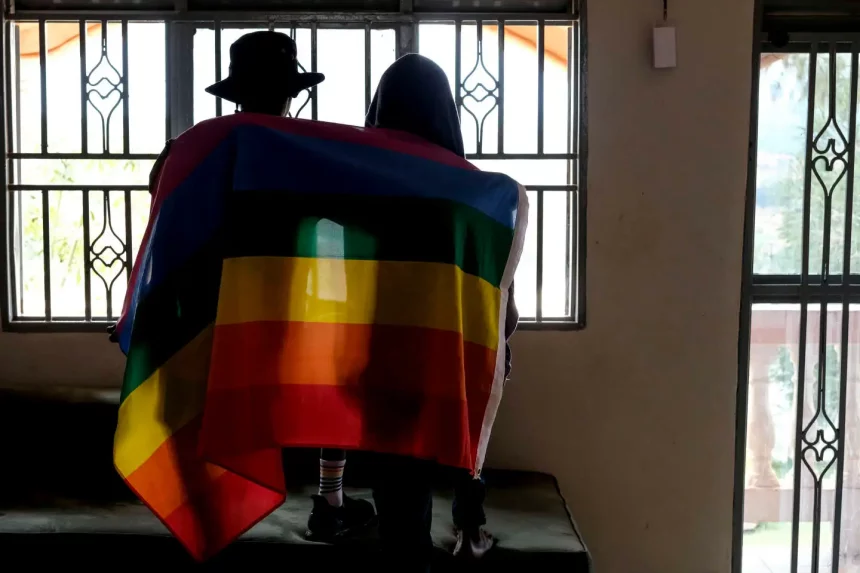Two Ugandan males have become the first people who may face the death penalty under Uganda’s new anti-homosexuality law.
Prosecutors accuse Julius Byaruhanga in the eastern district of Jinja of performing a sexual act with a boy aged 12.
Another man, 20-year-old Michael Opolot allegedly performed an unlawful act of sexual intercourse with a 41-year-old male in the eastern city of Soroti.
Justine Balya, a lawyer from the group Human Rights Awareness and Promotion Forum, is defending Opolot. She said her client was reportedly seen engaging in a sexual act in a public space with a person who has a disability.
Opolot now faces a possible death sentence if convicted under the anti-homosexuality law that took effect in June.
“Having the death penalty on the books, that changes significantly the protections that one is entitled to while they are waiting for trial,” Bayla said. “And it certainly makes trial remand a punishm
Because the case involves a capital offense, Opolot will probably have to wait between three and four years for his case to be heard.
Balya said several other cases involving alleged homosexuality are waiting to go to trial in Ugandan courts.
“We also have a case of a lady who has been charged with promotion of homosexuality and homosexuality because of what they allege people were doing at a massage parlor that she owns. And of course, there’s a host of other cases that are not in court but where people have been charged formally with homosexuality, promotion of homosexuality, even child grooming in one case.”
ent in and of itself.”
Frank Mugisha, a lawyer and activist, said these cases are textbook examples of a witch hunt for lesbian, gay and transgender people.
“Those people have not identified themselves as LGBTQ,” Mugisha said. “But the fact that there’s an assumption that they were engaging in same-sex acts. And then they are saying one person is living with disability. Which automatically the prosecution will have to prefer the death penalty under aggravated homosexuality. It’s exactly as activists what we’ve been saying that this law can be wrongly interpreted.”
Uganda last hanged a convict in 1999 and in 2005 formally scrapped the death penalty.
But the anti-homosexuality law reintroduced the death penalty for the offense of aggravated homosexuality, a move that gay rights activists have strongly criticized and are challenging in the courts.
During the passing of the law, government authorities argued that they were protecting the moral values and principles of the Ugandan society against what they termed corrupt Western values.
The draconian legislation, which was signed into law in May, has been condemned by the UN, foreign governments including the US, and global rights groups.
This month the World Bank announced it was suspending new loans to the East African nation, saying the law “fundamentally contradicts” the values espoused by the US-based lender.
In May, the US president, Joe Biden, called for the immediate repeal of measures he called “a tragic violation of universal human rights” and threatened to cut aid and investment in Uganda.
But the government has remained defiant and the legislation has broad support in the conservative, predominantly Christian country, where lawmakers have defended the measures as a necessary bulwark against perceived western immorality.
The Ugandan president, Yoweri Museveni, has accused the World Bank of trying to “coerce” the government to drop the controversial legislation.
Adrian Jjuuko, the executive director of the Human Rights Awareness and Promotion Forum, said his organisation had documented 17 arrests in June and July following the adoption of the law.
Earlier this month, following a tipoff police arrested four people including two women at a massage parlour in the eastern district of Buikwe for allegedly engaging in same-sex activity.
Meanwhile, journalists and media houses in Uganda say they fear heavy fines or the loss of their registration if they are somehow found guilty of “promoting homosexuality,” a term critics say has been vaguely explained in the law.



